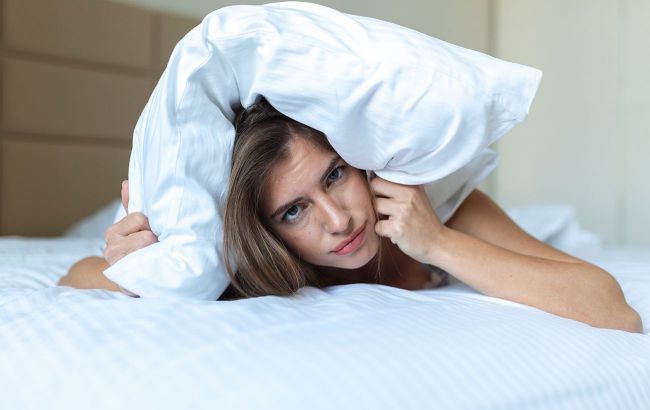Poor sleep can age you by 10 years: How not to rest
 Poor sleep can age you by 10 years (photo: freepik.com)
Poor sleep can age you by 10 years (photo: freepik.com)
The lack of sleep has a very negative impact on our well-being, both physically and mentally. Furthermore, as scientists have found out, poor sleep can make us feel older by several years instantly. And this is already very harmful to health.
Which type of sleep can age us by as much as 10 years is revealed by a study reported in the journal Proceedings of the Royal Society.
Healthy sleep makes us feel younger
Researchers from Stockholm University explored the potential connection between sleep and self-perceived age. They found that we feel significantly older when we haven't slept enough and are craving rest. Conversely, good and sufficient sleep has the opposite effect – if we're well-rested, we feel much younger and healthier.
The age a person feels objectively impacts their health. Previous studies have shown that feeling younger than one's actual age is associated with a longer and healthier life. Conversely, poor sleep is linked to an increased risk of high blood pressure and cognitive impairments.
There is even evidence suggesting that subjective age predicts the actual age of the brain: in those who feel younger, the brain appears younger.
"We set out to assess whether sleep, a fundamental process crucial for brain function and overall well-being, holds any secrets to feeling young," explains study author Leonie Balter.
How the research was conducted
A team of scientists investigated whether sleep and subjective perception of one's own age are related. They surveyed nearly 500 people aged 18 to 70 and asked them how old they feel, how many nights of insufficient sleep they had experienced in the last month, and how much they wanted to sleep.
The survey analysis revealed that participants felt on average 0.23 years older for each night of insufficient sleep in the past month.
Next, the researchers examined how lack of sleep caused participants to feel older. They used data from people whose sleep was limited to just four hours in bed over two nights. For comparison, data from people who spent 9 hours in bed for two consecutive nights were also taken into account.
According to the researchers, participants felt on average 4.4 years older when their sleep was limited to four hours. However, the impact of sleep on subjective age primarily depended on the participants' level of sleepiness.
Assessment of sleepiness using the Karolinska Sleepiness Scale (KSS) showed that participants in both studies felt ten years older when they were very sleepy (9 points on the KSS), rather than extremely alert and well-rested (1 point on the KSS).
When participants were extremely alert, they felt about four years younger than their actual age, whereas due to strong sleepiness, they felt six years older than their actual age.
Why getting enough sleep is truly important
Transitioning from sleeplessness to sleepiness increased the perceived age by ten years. This can significantly impact everyday life and health, as feeling youthful promotes a more active lifestyle and motivation for engaging in sports, for example.
Overall, the study results indicate that healthy sleep can also help preserve the feeling of youthfulness longer, which can lead to additional positive effects on health. Conversely, sleep disturbances also negatively affect the perception of one's age.
We also talked about what scientists have named as one of the most important factors of quality sleep.
This material is for informational purposes only and should not be used for medical diagnosis or self-treatment. Our goal is to provide readers with accurate information about symptoms, causes, and methods of detecting diseases. RBС-Ukraine is not responsible for any diagnoses that readers may make based on materials from the resource. We do not recommend self-treatment and advise consulting a doctor in case of any health concerns.

